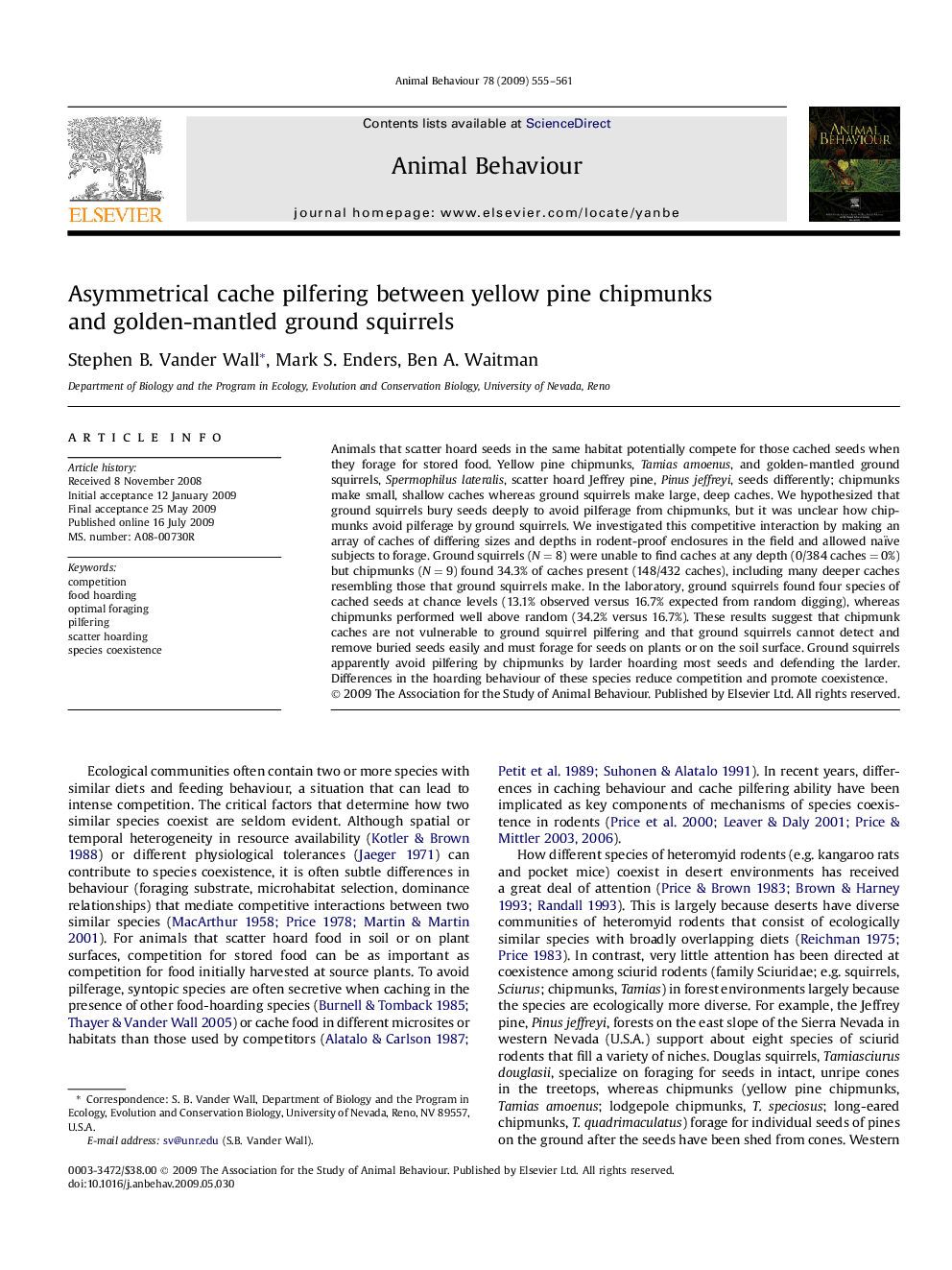| Article ID | Journal | Published Year | Pages | File Type |
|---|---|---|---|---|
| 2417460 | Animal Behaviour | 2009 | 7 Pages |
Animals that scatter hoard seeds in the same habitat potentially compete for those cached seeds when they forage for stored food. Yellow pine chipmunks, Tamias amoenus, and golden-mantled ground squirrels, Spermophilus lateralis, scatter hoard Jeffrey pine, Pinus jeffreyi, seeds differently; chipmunks make small, shallow caches whereas ground squirrels make large, deep caches. We hypothesized that ground squirrels bury seeds deeply to avoid pilferage from chipmunks, but it was unclear how chipmunks avoid pilferage by ground squirrels. We investigated this competitive interaction by making an array of caches of differing sizes and depths in rodent-proof enclosures in the field and allowed naïve subjects to forage. Ground squirrels (N = 8) were unable to find caches at any depth (0/384 caches = 0%) but chipmunks (N = 9) found 34.3% of caches present (148/432 caches), including many deeper caches resembling those that ground squirrels make. In the laboratory, ground squirrels found four species of cached seeds at chance levels (13.1% observed versus 16.7% expected from random digging), whereas chipmunks performed well above random (34.2% versus 16.7%). These results suggest that chipmunk caches are not vulnerable to ground squirrel pilfering and that ground squirrels cannot detect and remove buried seeds easily and must forage for seeds on plants or on the soil surface. Ground squirrels apparently avoid pilfering by chipmunks by larder hoarding most seeds and defending the larder. Differences in the hoarding behaviour of these species reduce competition and promote coexistence.
